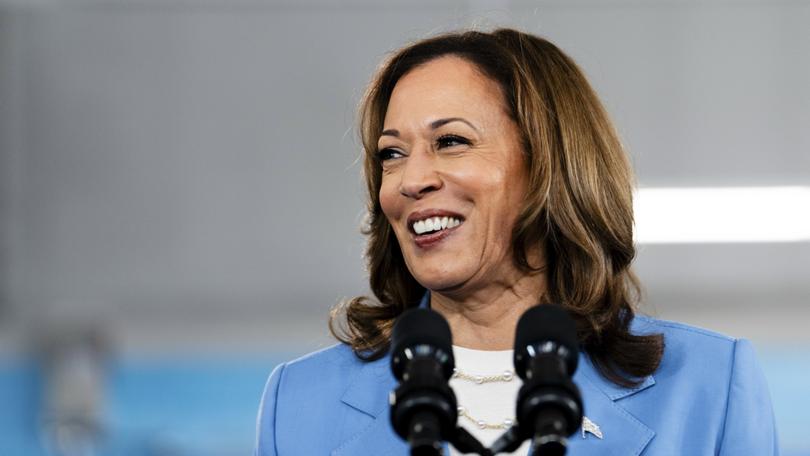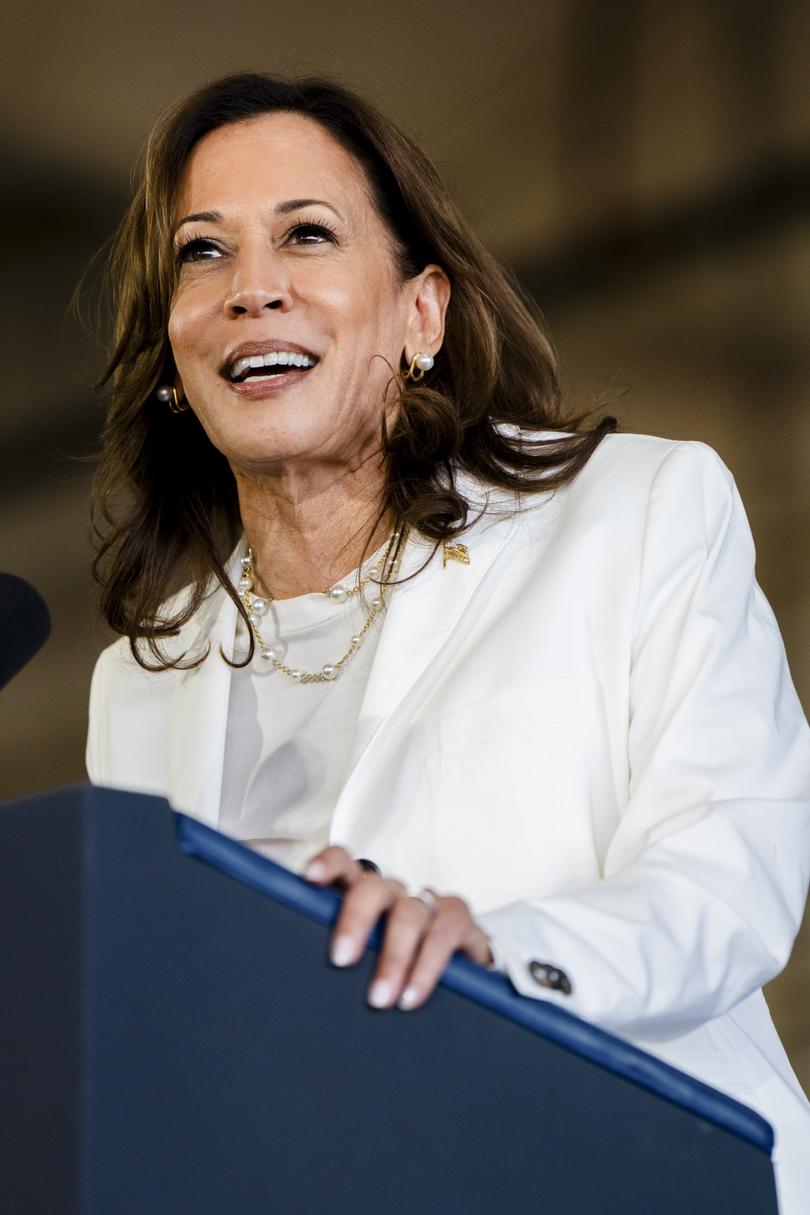STEVEN TELES: Kamala Harris has good vibes. Time for some good policies
STEVEN TELES: Ever since Kamala Harris seized the Democratic nomination from the shaky hands of Joe Biden, all the talk of her candidacy has focused on the V-word: vibes. But vibes can take you only so far.

Ever since Vice-President Kamala Harris seized the Democratic nomination from the shaky hands of President Joe Biden, all the talk of her candidacy has focused on the V-word: vibes.
Her campaign has emphasised joy and patriotism, in sharp contrast to the DC-Universe darkness of Donald Trump and his running-mate, J.D. Vance.
But vibes can take you only so far. Ms Harris and her running-mate, Tim Walz, have been criticised for failing to lay out concrete proposals in their recent television interview. Over the next nine weeks, Ms Harris needs to back up the V-word with the P-word: policy. She needs proposals that do not just sound like standard Democratic talking points, in order to rebut the charge that her vibes are phoney, that she’s just another “San Francisco Democrat”.
Sign up to The Nightly's newsletters.
Get the first look at the digital newspaper, curated daily stories and breaking headlines delivered to your inbox.
By continuing you agree to our Terms and Privacy Policy.The good news is that Democrats have the building blocks of an ambitious set of proposals that reinforce Ms Harris’s claim to be in touch with the concerns of “normal” Americans who aren’t yet sold on her candidacy. They come down to three more Ps: prices, punishment and patriotism. A campaign built around them will reinforce Ms Harris’s vibes and put Mr Trump and Mr Vance on the back foot.
Prices are at the front of the minds of the voters the Harris campaign needs to attract. The campaign’s dalliance with a focus on price-gouging seems to have fallen flat, as well as it should. But there is a smarter way to show it cares about prices: to cast aside centralised controls and double down on the “abundance agenda”.
The abundance agenda is built on a simple claim. In a piece I co-wrote in 2021 for the Niskanen Center, we argued that many of the core parts of the middle-class budget—including child care, housing, health care and higher education—face pervasive supply constraints. Trying to solve them with additional subsidy—intervening on the demand side—only pushes prices up further. Price controls, by contrast, risk-reducing incentives to produce more and create an arbitrary mess.
The answer is to attack supply constraints at every level, by breaking through the cartels and bottlenecks that make it hard to create more of these basic goods. We need to dismantle the doctor cartel that makes it hard for new physicians to get licences and for nurses to do more basic care. We need to be willing to use federal power to mow down zoning and construction rules that make it hard to build lots of houses cheaply. These rules are particularly bad in Democratic states like California—though Mr Walz has a good story to tell about Minnesota’s land-use reforms under his governorship. We need to bust through the complex of NIMBYism, recalcitrant utilities and out-of-date regulations that make it hard to build energy production and transmission. All of these changes would push down prices and spur economic growth.
The next P is punishment. Ms Harris clearly wants to run as a tough-minded former prosecutor, and she needs to do so to exorcise some of the demons of her presidential campaign in 2019. Although crime rates in most cities are down from their highs of a few years ago, the issue is still on voters’ minds.
Ms Harris’s framing from her 2009 book, “Smart on Crime”, is still basically the right one. America needs a criminal justice system that is swift, certain and fair. It needs to emphasise speed and efficiency over draconianism: apprehending criminals quickly, prosecuting them successfully and punishing them without delay, rather than trying to prevent crime with long prison sentences.
For the past few decades, America has had precisely the opposite strategy. Even as it made the punishment for serious crimes more severe, it has seen a big decline in clearance rates for serious crimes (meaning, generally, someone was arrested and charged), especially gun deaths where the victim was black. There is legislation in Congress to address this tragic decline in the justice that African-Americans in particular receive: the VICTIM Act, sponsored in the Senate by two Democrats and two Republicans.
There is much more Ms Harris could do to advance a strategy of swift, certain and fair. A huge number of crimes are committed under the influence of alcohol, and we have clear evidence that programmes like the “24/7 Sobriety” strategy pioneered by South Dakota—which requires those convicted of alcohol-related offences to take twice-a-day breathalyser tests—can dramatically reduce reoffending, without relying on long prison sentences. The SOBER Act, which has bipartisan support in Congress, would help bring 24/7 to other states. Ms Harris should endorse both VICTIM and SOBER, hold events across the country embracing this approach and challenge Mr Trump to do the same.

Finally, the third P, is patriotism. This is the policy area most susceptible to empty vibes, but even here there is policy substance to be found. Democrats have sustained repeated attacks for their embrace of “critical race theory” and the “1619 Project”, some of which were fair and some scurrilous. At a minimum, the optimistic story of American progress that Democrats told at their convention is in tension with the one that is increasingly popping up in school textbooks.
The Harris campaign has an opportunity to show that it is willing to defy its more wild-eyed professional and pedagogical allies by throwing its support behind the Educating for American Democracy proposals for reinvigorating civic education. Written by an eclectic coalition of liberals and conservatives, these proposals moved beyond the 1619-versus-1776 culture-war framing of American history and understanding of its institutions. Instead, they sought to dramatically increase the quality of civic education within a framework that, rather like the Harris campaign’s vibes, balances “civic honesty and patriotism”.
Announcing that her administration would put serious resources behind implementing these ideas, and committing to bring conservative scholars and politicians into that project, might generate pushback from liberal professionals and pedagogues. But that pushback is just what Ms Harris needs, to show that she is not captive to activists on the left.
Driving down prices by increasing supply; fighting crime through swift, certain and fair policing and punishment; and advancing patriotism through a revamped civic-education curriculum. Together, these policies would show the voters who will decide this election that Ms Harris intends to govern the way she is campaigning, speaking squarely to the concerns of normal Americans. Opposing them would look, well, weird.
